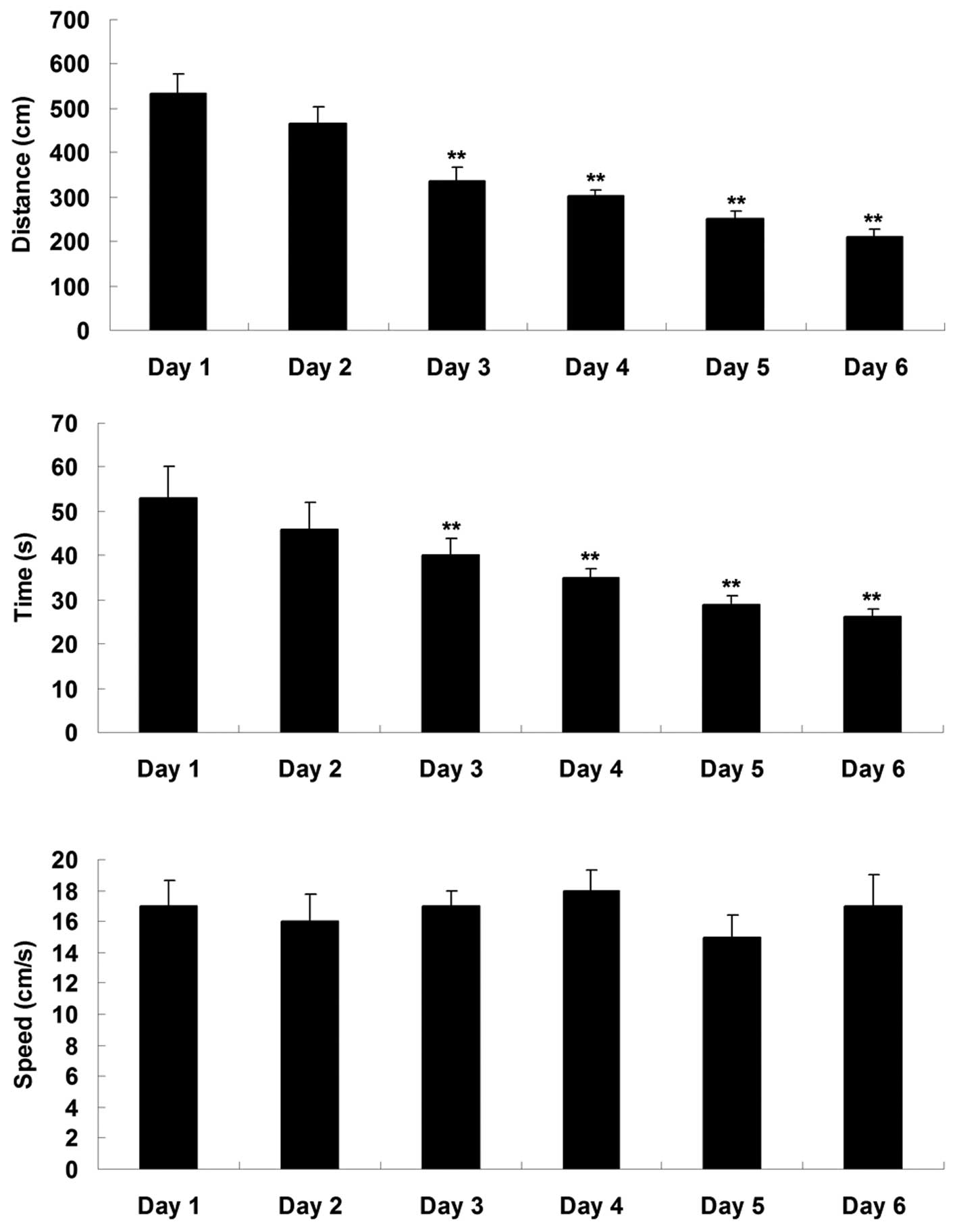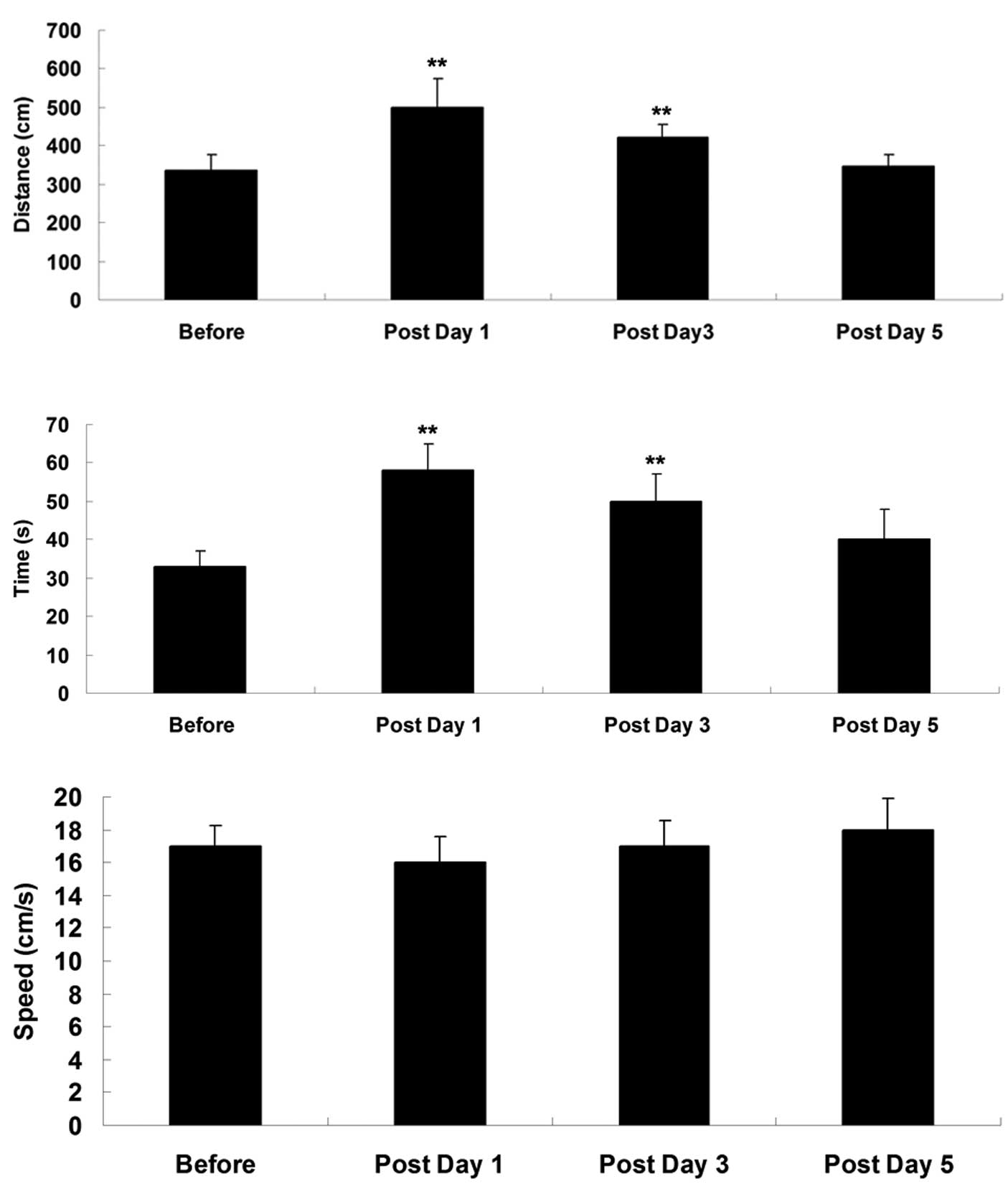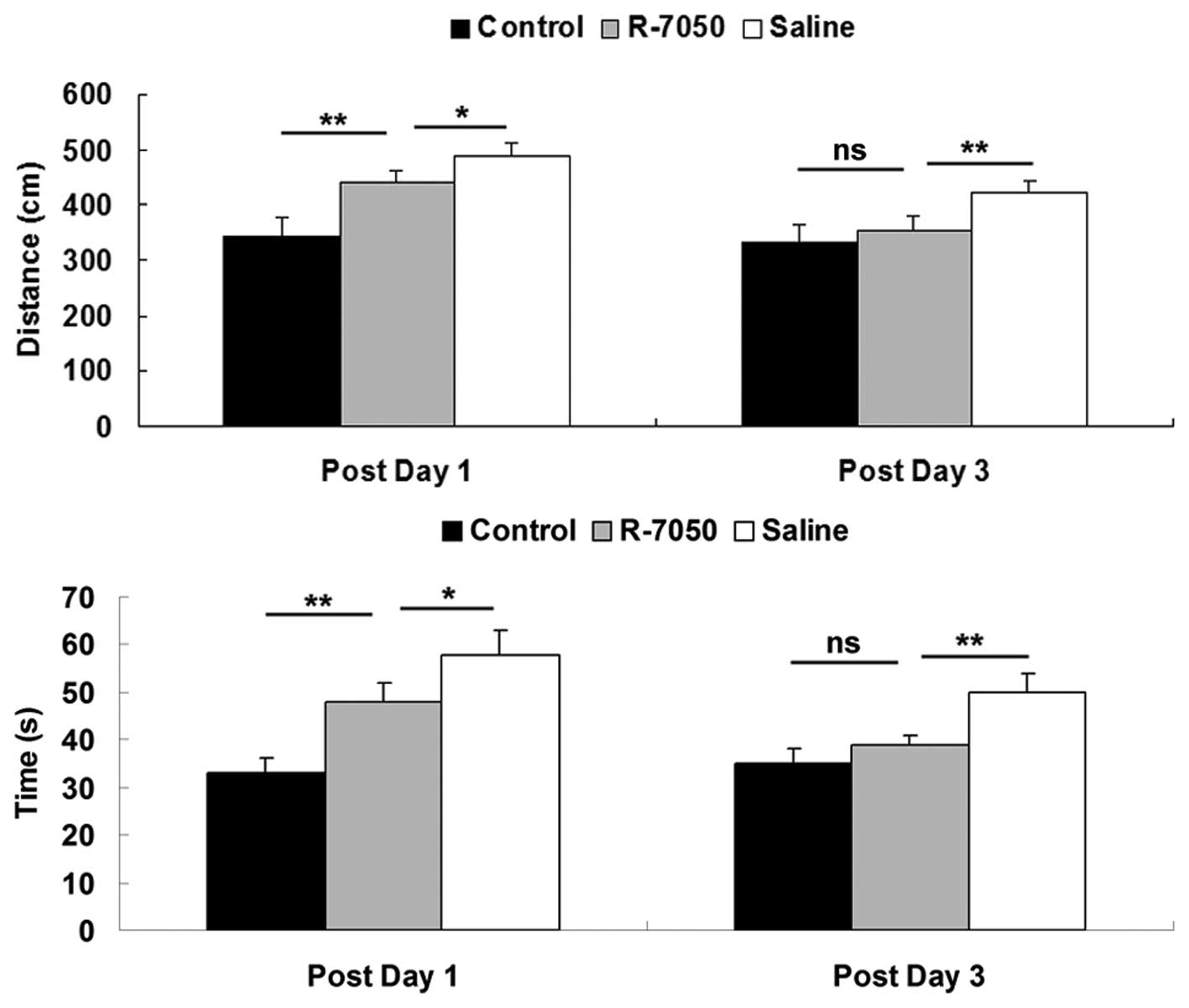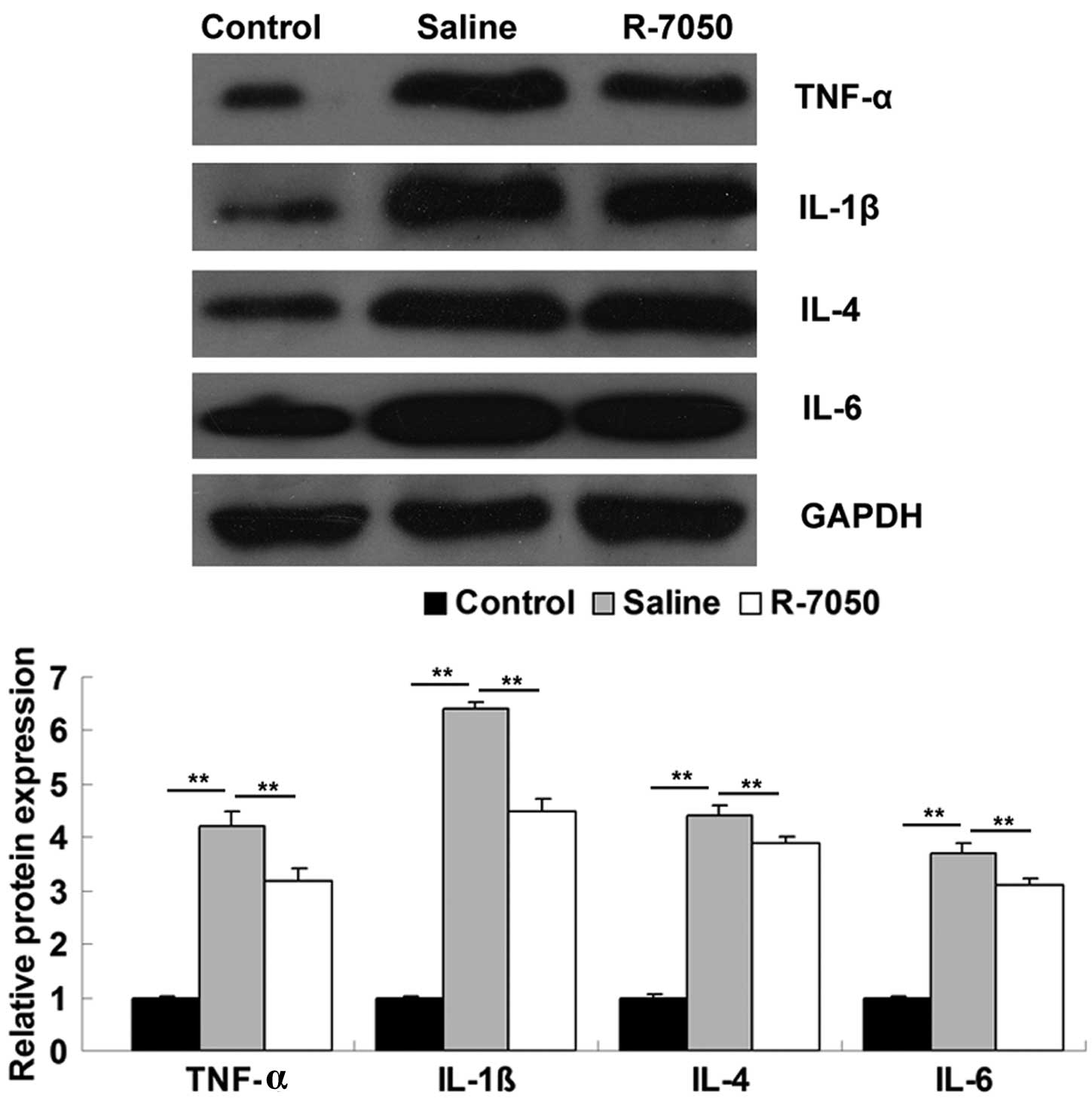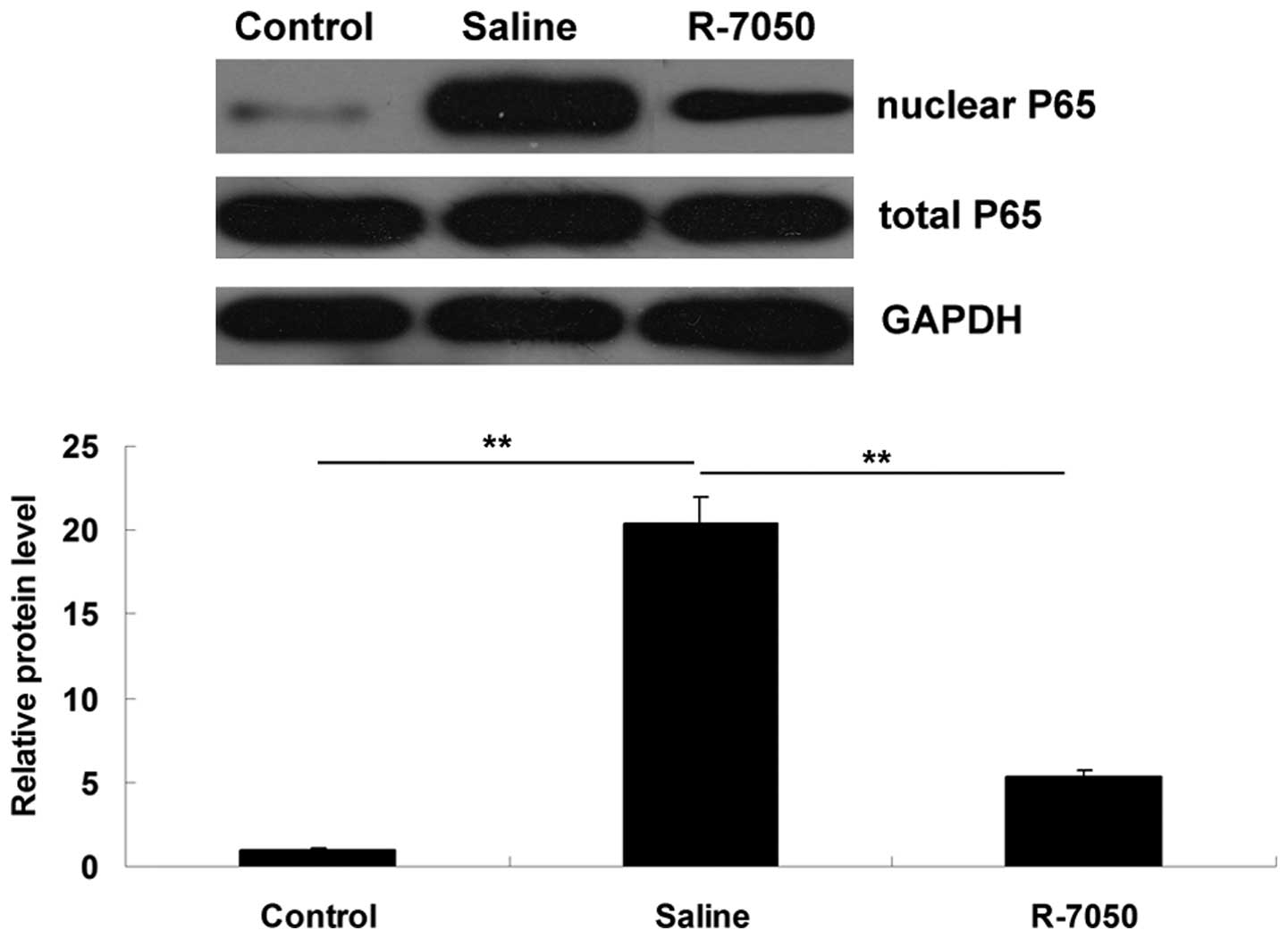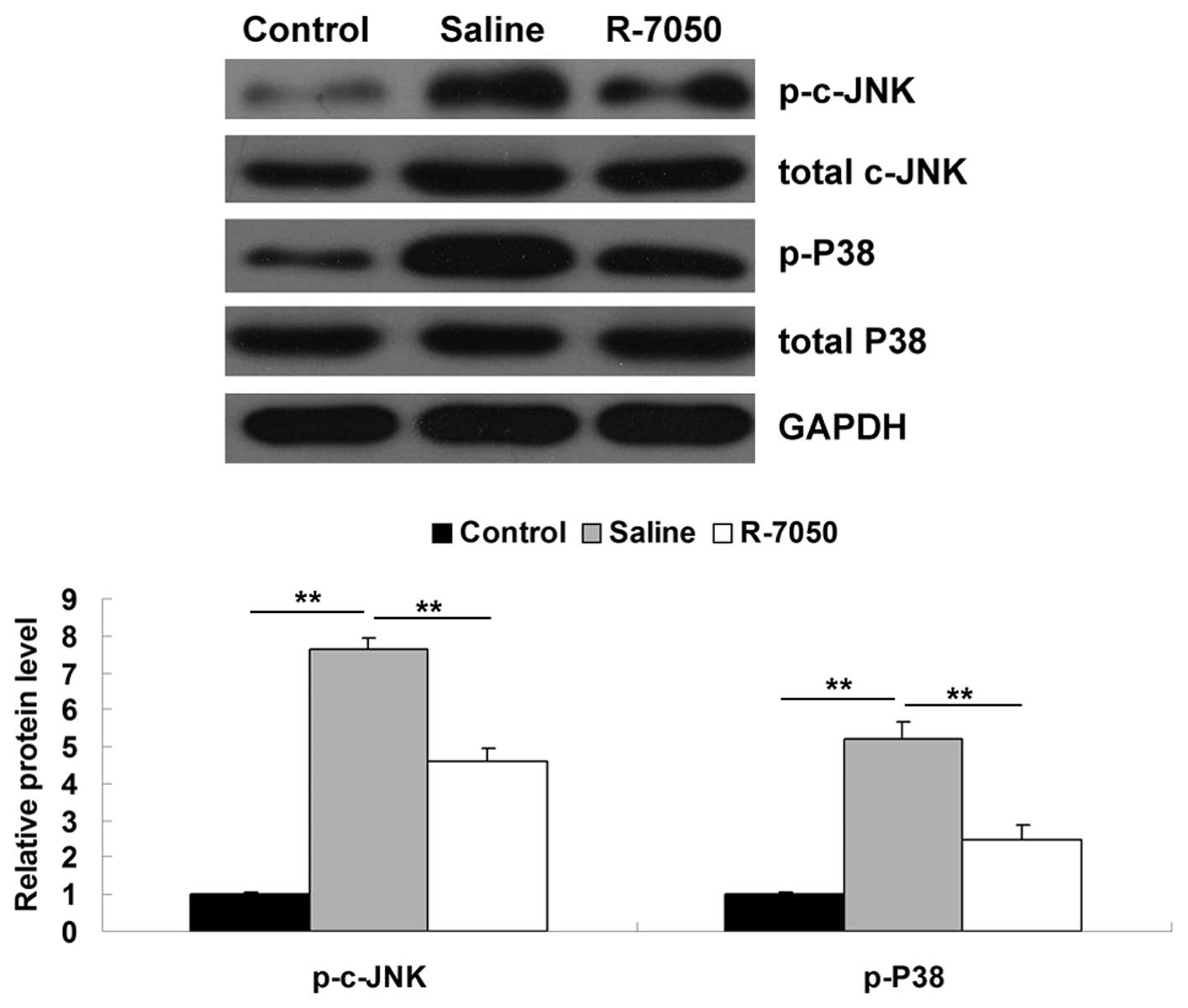|
1
|
Colenkova AV, Bondarenko AA, Yu Lubnin A
and Dzyubanova NA: Postoperative cognitive dysfunction in elderly
patients. Anesteziol Reanimatol. 4:13–19. 2012.In Russian.
|
|
2
|
Li M, Yong-Zhe L, Ya-Qun M, Sheng-Suo Z,
Li-Tao Z and Ning-Ling P: Ulinastatin alleviates neuroinflammation
but fails to improve cognitive function in aged rats following
partial hepatectomy. Neurochem Res. 38:1070–1077. 2013. View Article : Google Scholar : PubMed/NCBI
|
|
3
|
Cao XZ, Ma H, Wang JK, et al:
Postoperative cognitive deficits and neuroinflammation in the
hippocampus triggered by surgical trauma are exacerbated in aged
rats. Prog Neuropsychopharmacol Biol Psychiatry. 34:1426–1432.
2010. View Article : Google Scholar : PubMed/NCBI
|
|
4
|
Chen J, Buchanan JB, Sparkman NL, Godbout
JP, Freund GG and Johnson RW: Neuroinflammation and disruption in
working memory in aged mice after acute stimulation of the
peripheral innate immune system. Brain Behav Immun. 22:301–311.
2008. View Article : Google Scholar
|
|
5
|
Garcia GE, Xia Y, Chen S, et al:
NF-kappaB-dependent fractalkine induction in rat aortic endothelial
cells stimulated by IL-1beta, TNF-alpha and LPS. J Leukoc Biol.
67:577–584. 2000.PubMed/NCBI
|
|
6
|
Rosczyk HA, Sparkman NL and Johnson RW:
Neuroinflammation and cognitive function in aged mice following
minor surgery. Exp Gerontol. 43:840–846. 2008. View Article : Google Scholar : PubMed/NCBI
|
|
7
|
Terrando N, Monaco C, Ma D, Foxwell BM,
Feldmann M and Maze M: Tumor necrosis factor-alpha triggers a
cytokine cascade yielding postoperative cognitive decline. Proc
Natl Acad Sci USA. 107:20518–20522. 2010. View Article : Google Scholar : PubMed/NCBI
|
|
8
|
Riches DW, Chan ED and Winston BW:
TNF-alpha-induced regulation and signalling in macrophages.
Immunobiology. 195:477–490. 1996. View Article : Google Scholar : PubMed/NCBI
|
|
9
|
Yang HL, Chang HC, Lin SW, et al: Antrodia
salmonea inhibits TNF-α-induced angiogenesis and atherogenesis in
human endothelial cells through the down-regulation of NF-κB and
up-regulation of Nrf2 signaling pathways. J Ethnopharmacol.
151:394–406. 2014. View Article : Google Scholar
|
|
10
|
Song HY, Regnier CH, Kirschning CJ,
Goeddel DV and Rothe M: Tumor necrosis factor (TNF)-mediated kinase
cascades: Bifurcation of nuclear factor-kappaB and c-jun N-terminal
kinase (JNK/SAPK) pathways at TNF receptor-associated factor 2.
Proc Natl Acad Sci USA. 94:9792–9796. 1997. View Article : Google Scholar : PubMed/NCBI
|
|
11
|
Yuasa T, Ohno S, Kehrl JH and Kyriakis JM:
Tumor necrosis factor signaling to stress-activated protein kinase
(SAPK)/Jun NH2-terminal kinase (JNK) and p38. Germinal center
kinase couples TRAF2 to mitogen-activated protein kinase/ERK kinase
kinase 1 and SAPK while receptor interacting protein associates
with a mitogen-activated protein kinase kinase kinase upstream of
MKK6 and p38. J Biol Chem. 273:22681–22692. 1998. View Article : Google Scholar : PubMed/NCBI
|
|
12
|
Hu Z, Ou Y, Duan K and Jiang X:
Inflammation: A bridge between postoperative cognitive dysfunction
and Alzheimer’s disease. Med Hypotheses. 74:722–724. 2010.
View Article : Google Scholar
|
|
13
|
Yu D, Corbett B, Yan Y, et al: Early
cerebrovascular inflammation in a transgenic mouse model of
Alzheimer’s disease. Neurobiol Aging. 33:2942–2947. 2012.
View Article : Google Scholar : PubMed/NCBI
|
|
14
|
Abildstrom H, Rasmussen LS, Rentowl P, et
al: Cognitive dysfunction 1–2 years after non-cardiac surgery in
the elderly. ISPOCD group International study of post-operative
cognitive dysfunction. Acta Anaesthesiol Scand. 44:1246–1251. 2000.
View Article : Google Scholar : PubMed/NCBI
|
|
15
|
Boodhwani M, Rubens FD, Wozny D, et al:
Predictors of early neurocognitive deficits in low-risk patients
undergoing on-pump coronary artery bypass surgery. Circulation.
114(Suppl 1): I461–I466. 2006. View Article : Google Scholar : PubMed/NCBI
|
|
16
|
Canet J, Raeder J, Rasmussen LS, et al:
Cognitive dysfunction after minor surgery in the elderly. Acta
Anaesthesiol Scand. 47:1204–1210. 2003. View Article : Google Scholar : PubMed/NCBI
|
|
17
|
Deiner S and Silverstein JH: Postoperative
delirium and cognitive dysfunction. Br J Anaesth. 103(Suppl 1):
i41–i46. 2009. View Article : Google Scholar : PubMed/NCBI
|
|
18
|
Kamer AR, Galoyan SM, Haile M, et al:
Meloxicam improves object recognition memory and modulates glial
activation after splenectomy in mice. Eur J Anaesthesiol.
29:332–337. 2012. View Article : Google Scholar : PubMed/NCBI
|
|
19
|
Hains LE, Loram LC, Taylor FR, et al:
Prior laparotomy or corticosterone potentiates
lipopolysaccharide-induced fever and sickness behaviors. J
Neuroimmunol. 239:53–60. 2011. View Article : Google Scholar : PubMed/NCBI
|
|
20
|
Didem B, Huseyin B, Osman Y, Yasemin B,
Necati G and Canan T: Early effects of laparotomy and laparoscopy
on bacterial behavior and proinflammatory cytokines on bacterial
peritonitis in rats I: Escherichia coli. J Pediatr Surg.
43:1494–1501. 2008. View Article : Google Scholar : PubMed/NCBI
|
|
21
|
Kannan S, Saadani-Makki F, Muzik O, et al:
Microglial activation in perinatal rabbit brain induced by
intrauterine inflammation: Detection with 11C-(R)-PK11195 and
small-animal PET. J Nucl Med. 48:946–954. 2007. View Article : Google Scholar : PubMed/NCBI
|
|
22
|
Barrientos RM, Hein AM, Frank MG, Watkins
LR and Maier SF: Intracisternal interleukin-1 receptor antagonist
prevents postoperative cognitive decline and neuroinflammatory
response in aged rats. J Neurosci. 32:14641–14648. 2012. View Article : Google Scholar : PubMed/NCBI
|
|
23
|
Hoesel B and Schmid JA: The complexity of
NF-κB signaling in inflammation and cancer. Mol Cancer. 12:862013.
View Article : Google Scholar
|
|
24
|
Muñoz A and Costa M: Nutritionally
mediated oxidative stress and inflammation. Oxid Med Cell Longev.
2013:6109502013. View Article : Google Scholar : PubMed/NCBI
|
|
25
|
Arslan F, Lai RC, Smeets MB, et al:
Mesenchymal stem cell-derived exosomes increase ATP levels,
decrease oxidative stress and activate PI3K/Akt pathway to enhance
myocardial viability and prevent adverse remodeling after
myocardial ischemia/reperfusion injury. Stem Cell Res. 10:301–312.
2013. View Article : Google Scholar : PubMed/NCBI
|
|
26
|
Chen WL, Sheu JR, Hsiao CJ, Hsiao SH,
Chung CL and Hsiao G: Histone deacetylase inhibitor impairs
plasminogen activator inhibitor-1 expression via inhibiting
TNF-α-activated MAPK/AP-1 signaling cascade. Biomed Res Int.
2014:2310122014. View Article : Google Scholar
|
|
27
|
Lee IT, Lin CC, Cheng SE, Hsiao LD, Hsiao
YC and Yang CM: TNF-alpha induces cytosolic phospholipase A2
expression in human lung epithelial cells via JNK1/2- and p38
MAPK-dependent AP-1 activation. PLoS One. 8:e727832013. View Article : Google Scholar
|
|
28
|
Qiu Q, Xiong W, Yang C, et al:
Lymphocyte-derived micropar-ticles induce apoptosis of airway
epithelial cells through activation of p38 MAPK and production of
arachidonic acid. Apoptosis. 19:1113–1127. 2014. View Article : Google Scholar : PubMed/NCBI
|
|
29
|
Ma JQ, Ding J, Zhang L and Liu CM: Ursolic
acid protects mouse liver against CCl4-induced oxidative stress and
inflammation by the MAPK/NF-κB pathway. Environ Toxicol Pharmacol.
37:975–983. 2014. View Article : Google Scholar : PubMed/NCBI
|















